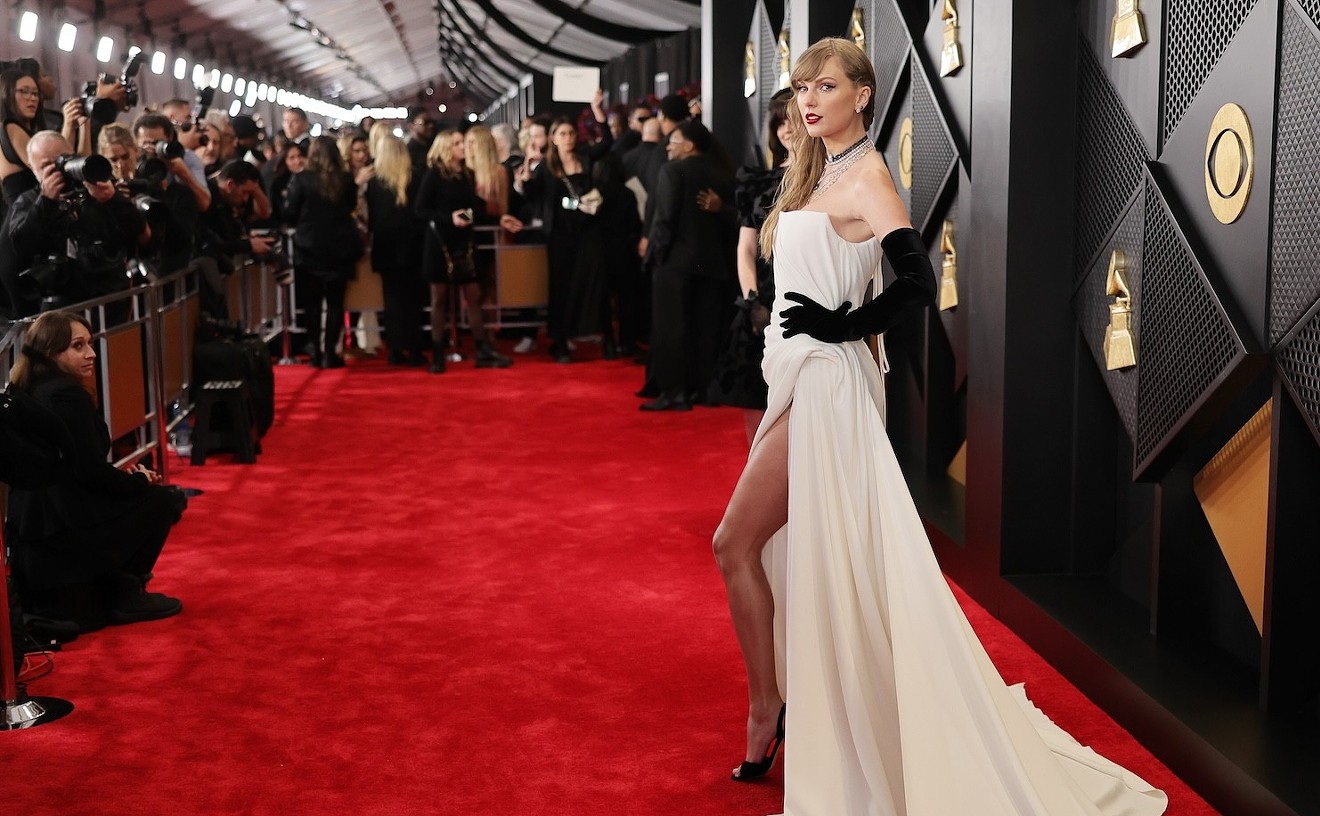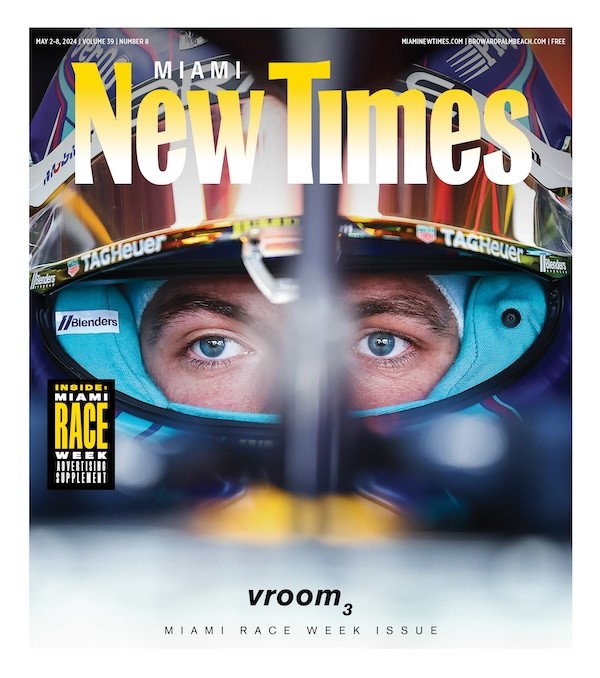Before he ever made the hits "Spank," and "Dance Across The Floor," Jimmy "Bo" Horne was just a kid from West Palm Beach who got signed to TK Records.
Today, his infectious dance cuts from the '70s are still hits today. And their now classic Miami sounds still pack concerts of thousands from Sao Paolo to Rome, like the Disco Fever show this June 28, at the BankUnited Center in Coral Gables.
Here's what he had to say about shows at Dillard High Shool, working with James Brown, and appearing on American Bandstand.
So, how'd you get started?
Man, when I was in high school, the name of school was Roosevelt High School, in West Palm Beach, Florida. And in the eighth grade, my father put me into the choral chorale. I graduated in 1967 and got a music scholarship to Bethune Cookman College. Now it's called Bethune Cookman University.
Well, in 1967 when I got ready to go to college, that's when a popular radio program director by the name of Joe Fisher of WRBD on Rock Island Road down in Pompano took me to meet Henry Stone, and in 1967 I was signed to TK Records.
So the same year that I went off to college, Clarence Reid (aka Blowfly) and Willie Clarke were writing music for me.
It was almost like Gamble and Huff writing for you. Felt like Lionel Richie wrote for me, they were already getting hits with Betty Wright.
Clarence wrote my first record, called, I Cant Speak. Little did I know, later it would be big in London, England, in the club circuit. It was only released territorial like in Florida, just like the tri-county area, but somehow or other the British record collectors, way after I had other hits, got enthusisaitic and they tell me today it's worth $1,500.
What was your first hit?
My first hit in terms of a big hit was the song that KC (from KC & The Sunshine Band) wrote for me which was "Dance Across The Floor."
Who was on it?
KC, Rick Finch on bass, Jerome Smith on guitar, and Robert Johnson the drummer, KC's original drummer. Little do people know that KC used to open shows for me. He was singer in the band the Oceanliners, and I used to hire them to do jobs for me.
Where'd you play?
In that time it was segregation, the black clubs. The Jetaway off 36th Street in Miami. In Lauderdale it was a club called the Pride of Fort Lauderdale Elks Club. We played a huge High School called Dillard High School. I had a song called "Cleanup Man" that Clarence wrote which was a answer record to Betty Wright's "Cleanup Woman."
What was it like working with him back then?
Clarence was brilliant back during that time. A man that could just make words and come up with words and the way to say things, he was brilliant. That's why he wrote "Cleanup Man" for me, and he wrote another song for me called "Down The Road Of Love," and then I had another song thaty broke out overseas called "Hey There Jim" which was on Dash, one of Henry's labels. That was talking about the burning of Detroit when MLK was assassinated and Bobby Kennedy too. It was all about, "You tell your people, and I'll tell mine, we need to get together."
Then I had "If You Want My Love," and that was a South Floirda hit. After that I had "Streetcorners," all written by Clarence Reid and Willie Clarke. That was all about prostitutes, which were a big thing at the time.
It went, "Standing on the corner with they hands on their hips, with a phony smile upon their lips/most of them are not there because they wanna/they know they're only real friend is the street corner."
They all came out as singles. And my first big one, believe it or not, was "Gimme Some." That broke in Canada, and I got a gold record there.
And then "Spank" was like a double gold in Johannesburg in South Africa, and then my next big song was is "Is It In? (Your Heart)."
And that's when you moved from TK label to Sunshine Sound?
At that time KC and Rick Finch could do no wrong. They were writing hits. They had that rhythm section like Motown's Funk Brothers with Jerome and Robert and Finch playing bass and engineering. They were hot. KC was turning em' out.
One of the times in Tampa that he was opening for me he said, "One day I'm gonna write hits for you." And the next thing you know, we're turning out hits.
That's when Henry Stone realized disco music was fast chaniging and impacting R&B music, and that's when Henry told KC, "Look man, write some songs for Jimmy 'Bo' Horne. I need a hit on Jimmy."
What was the atmosphere?
Man, it was like a family. You come to the studio and it was pride. Benny Latimore and people who already had hits were all around. Little Beaver, Betty Wright, Paulette Reeeves, all the artists Peter Brown, Foxy, it was almost like all brothers and sisters, Timmy Thomas. Timmy might cut on Betty Wright on songs, she might sing backup on a KC song, I might sing background on one of KC's songs. Latimore might play keyboard on a Little Beaver song.
What about Jerome Smith, the guitar player from "Rock Your Baby?"
Jeorme was the baddest guitar ever. He would play sometimes with Little Beaver. Before KC got famous, it was the Oceanliners, then they were called the Sunshine Junkanoo Band, then KC and the Sunshine Band.
Without Henry Stone, during my time, there would have been no way, if he hadn't come along and decided to do R&B music, and to specialize in all types of music, island music, disco music, if he hadn't a come along, there was nothing or nobody in Florida that could have made a Jimmy "Bo" Horne, a Timmy Thomas, a Benny Latimore, Betty was signed with Henry, some of her biggest songs came during the time of Henry Stone, Ralph MacDonald, Sam & Dave, James Brown on the Brownstone Label...
I played with James Brown at the Miami Arena, and at his club in Augusta, Georgia, called the Third World.
How'd that come about?
I had a big song out, "Dance Across The Floor," and James would speak to Henry often and James booked me to come play his club. It was the greatest opportunity ever. I got a chance to learn from James Brown. His discipline. He said something to me that I still practice now today. He said, in his James Brown voice, "Mr. Bo Horne, do you know the definition of show business?" I said I'm willing to learn. He said, "You have to do the business first so you can show up to do the show."
In those days, artists would be so happy to do shows that promoters in other cities would take advantage, but there was never a time that James Brown didn't get his money. He did the business first. He wasn't coming unless the money was there first and he sent people on the road to get his money. Here was man with a sixth grade education who owned 6 or 7 radio stations.
In the '80s at the Miami Arena, that was like Woodstock. It was James Brown and some more artists, Tone Lōc.
It taught me that I need to be a business man/artist. There was a WEDR DJ called Jimmy G and his motto was, "Don't nothing come to a sleeper but a dream, strange as it may seem."
You never get a second chance at a first impression, and you're no better than your last performance. People don't understand, it's nice to be important, but it's more important to be nice. And that's the alpha and the omega of Jimmy Bo Horne.
The DJ Paul Oakenfold was saying how he was your fan.
When you got people that love what you do, and feel what you're doing, it's a high that's better than heroin or crack. When people really love what you do. I was just in Sao Paulo, Brazil, playing for 6,000 people. Headlining. Young people. And that's what's crazy about the TK sound, the Miami sound, the Sunshine Sound.
And that's why I'm asking, why is there not a TK tour like there is a Motown tour?
They called me to come back, I came. Thousands of people again and again. 15 clubs and halls. People screaming, hollering, crying in the dressing room off "You Get Me Hot," "Dance Across The Floor," "Is It In," "They Long To Be Close To You."
I'll be performing until they put me in the grave. I'm not new to this, I'm true to this. I'm trying my own efforts to get this TK tour going where people will see that we have a legacy, and the story about "Rock Your Baby" is the real story and those that are still alive are in the business of restoring themselves.
And I mean it was nothing in those days to hear your stuff on the radio, and go to countries that they can't speak English, but they know the words to your songs. To see your name on billboards and a see people waiting for you like a member of the Miami Heat and to play five different television shows: Casey Kasem, Merv Griffin, Dinah Shore, Mike Douglas, and the biggest man in the music business, with American Bandstand, Dick Clark. There's a lot of videos of me on YouTube.
What's up with the Disco Fever show June 28, 2014?
The new messiah is Charlie Rodriguez Live Entertainment. He is bringing back the music that young and old can identify with, and it's a happy music and it's a music not for blacks, it's for blacks, whites, Latins, Brazilians, Colombians, Italians; it's a music that people love. Charlie is keeping life into my area of music. That's why the show with Tavares, Jimmy "Bo" Horne, Terry DeSario, the new Dick Clark, Charlie Rodriguez is sayin' let's make it do what it do.
And you could go to jimmiebohorne.com and you will see the people in Brazil going crazy over a man who just loves to make em' feel good.
New Party Rules for Millennials
10 Best Hipster Bars in Broward and Palm Beach Counties
Top 20 Sexiest R&B Songs from the '90s to Today
Ten Best Florida Metal Bands of All Time
Follow @CountyGrind










